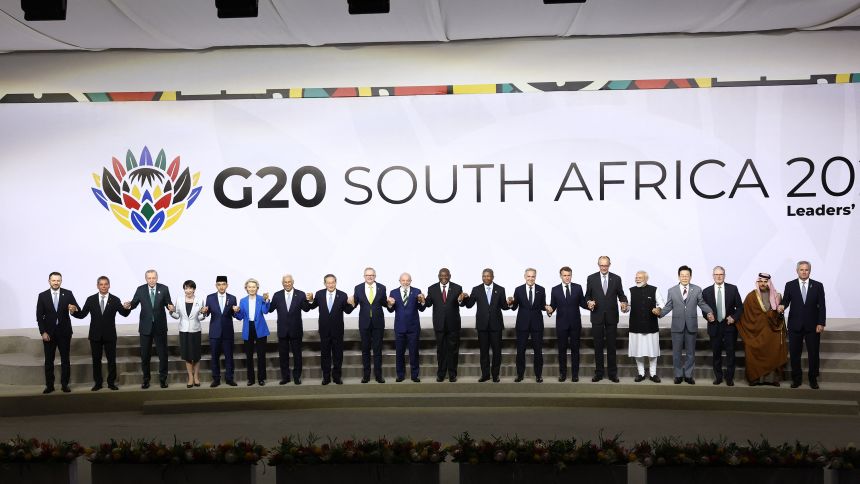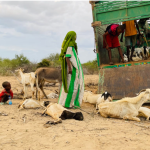JOHANNESBURG SONNA — When the history of the twenty-first-century diplomacy is written, the 2025 G20 Summit in Johannesburg will likely be recorded as a moment of transition. Marking the first time this premier forum for international economic cooperation has convened on African soil, the event was anticipated as a celebration of the continent’s ascent to the high table of global governance. However, against a backdrop of complex geopolitical headwinds including the notable absence of the United States leadership, the summit evolved into something far more significant than a ceremonial gathering. It became a demonstration of resilience, proving that the machinery of global cooperation can function even when its traditional engines are out of sync.
For the host nation, South Africa, and the broader African Union (AU), the summit’s conclusion represents a diplomatic fortitude. By successfully navigating deep divisions to secure a Leaders’ Declaration on the opening day, the Johannesburg Summit has affirmed a new reality: the “Global Majority” is no longer a passive observer of international policy, but an active architect of it.
A Summit of “Solidarity” Amidst Divergence
The atmosphere inside the Sandton Convention Centre was one of determined focus. While the decision by US President Donald Trump to bypass the summit citing diplomatic differences cast a shadow over the proceedings, it did not paralyze them. Instead, it galvanized the remaining nations to prioritize stability and continuity.
Diplomats and analysts have noted that the absence of the United States created a unique dynamic, a “G19” environment where the conversation naturally gravitated toward the priorities of the developing world. The swift adoption of the Johannesburg Declaration, which addresses critical issues ranging from climate finance to sustainable debt management, suggests a growing cohesion among the Global South, alongside pragmatic engagement from European and Asian partners.
“The focus here has been strictly on the work,” noted a senior delegate from the African Union. “The challenges facing the world—poverty, inequality, and climate change—do not pause for diplomatic disputes. Therefore, neither can we.”
China and India: Anchoring the Agenda
In the vacuum left by Washington’s withdrawal, major Asian powers demonstrated a commitment to the multilateral system, offering stability when it was most needed.
The Chinese delegation, led by Premier Li Qiang, navigated the summit with a tone of consistent partnership. Avoiding polarizing rhetoric, Beijing focused its interventions on “universal modernization” and the practicalities of development. By aligning closely with the African Union’s Agenda 2063, China reinforced its position not merely as a trading partner, but as a steady proponent of the Global South’s aspirations within the G20 framework. The underlying message was one of reliability; as Western engagement fluctuates, Beijing sought to project an image of enduring support for African industrialization.
Simultaneously, India continued to assert its intellectual leadership. Prime Minister Narendra Modi, building on the success of the 2023 New Delhi summit, tabled a forward-looking “Six-Point Plan.” His proposals, including a “Global Traditional Knowledge Repository” and a “G20–Africa Skills Multiplier,” offered a substantive blueprint for human-centric development. Together, the Asian giants ensured that the summit remained substantive, preventing the diplomatic impasse that many critics had predicted.
Africa’s Voice: From Participation to Policy
The true significance of the event, however, lies in its specific outcomes for Africa. For decades, African nations have campaigned for a “just transition” in energy and a reform of the global financial architecture. In Johannesburg, these were not sidebar discussions; they were the main agenda.
A landmark achievement of the summit was the consensus to establish a “Global Panel on Inequality.” Modeled on the rigorous scientific approach of the UN’s climate panel (IPCC), this initiative—championed by President Cyril Ramaphosa—seeks to place wealth disparity at the center of global economic policy. It is a distinct shift in the G20’s focus, moving beyond simple GDP growth to address the structural imbalances that affect developing nations.
Furthermore, the presence of the African Union as a permanent member fundamentally altered the tone of the room. Discussions on critical minerals, for instance, shifted from resource extraction to “beneficiation” ensuring that value is added within Africa before export. This signals a departure from the historical economic models of the past century.
Adapting to a Multipolar World
The summit also highlighted the adaptability of Western powers. Recognizing the shifting tides, the United Kingdom, represented by Prime Minister Keir Starmer, used the occasion to reaffirm its economic ties with the continent, announcing significant investment packages. This move illustrated that despite the transatlantic divergence on display, Europe and the UK remain keen to maintain relevance and partnership with the Global South.
As the summit concludes, the procedural handover of the G20 presidency to the United States presents a complex diplomatic tableau. While protocol may have been strained by the events of the weekend, the legal transition proceeds. Yet, the Johannesburg Summit leaves behind a changed landscape.
It has demonstrated that the Global South possesses the capacity, the agency, and the solidarity to drive the international agenda forward. The “Johannesburg Consensus” is that the world is becoming truly multipolar, a reality that offers Africa new avenues for partnership and a louder voice in determining its own future.





